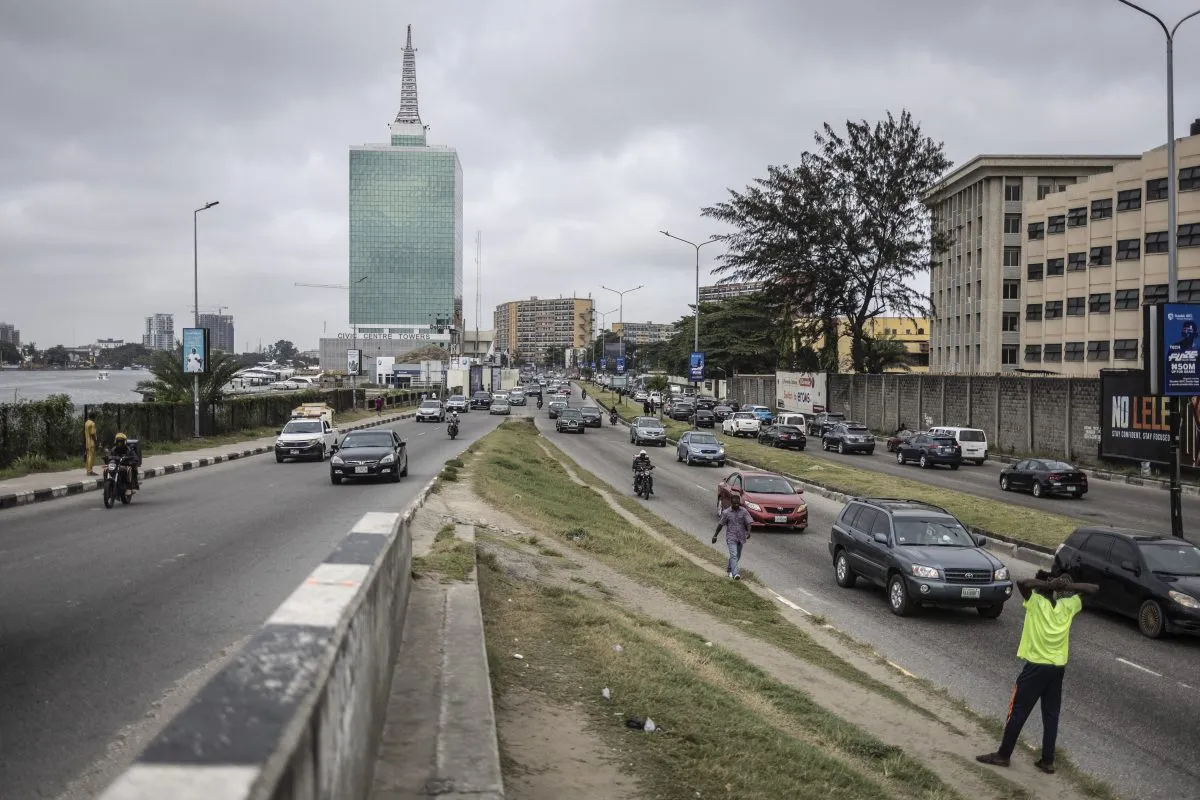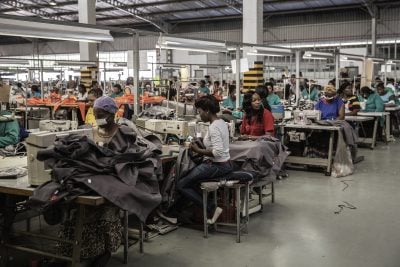Nigeria’s radical economic reforms are gaining traction and investors are beginning to re-engage, says the country’s minister of state for finance Doris Uzoka-Anite.
Speaking on the sidelines of Standard Bank’s African Markets Conference in Cape Town, Uzoka-Anite insisted that the economy is primed for growth after what some analysts described as President Bola Tinubu’s “shock therapy”, which included devaluation of the naira and the withdrawal of extensive fuel subsidies.
“The president was hell bent on reform. People were worried about how this would work but everyone soon saw the president was not going to back down. The fiscal policy authorities followed his lead, and we all adjusted. Now we are all aligned, and it is moving forward,” Uzoka-Anite said.
“We are in the second year of our reform process now and the economy has cooled off, inflation has cooled off and food prices have come down. We are heading for growth. Now everyone understands why we had to do the reform in the first place.”
Investors watched with concern the initial impact of radical reforms instituted by Tinubu following his election, which included the withdrawal of fuel subsidies and liberalisation of the exchange rate.
While many had felt the reforms were necessary for structural change, it raised concerns about whether the economy would sustain concurrent shocks. This included a sharp depreciation of the currency and with it, a spike in inflation and serious foreign exchange shortages, particularly with a decline in oil production due to oil theft and pipeline vandalism.
“When we started, people were surprised at the speed of Nigeria’s reforms. But it allowed us time to normalise things, stabilise the economy and see the effect they would have,” said Uzoka-Anite.
“We had to take back the chunk of GDP that was ‘leaking’ into a few private hands and make it available for infrastructure and social development.”
Central bank gets house in order
The IMF expects the economy to grow by a modest 3.2% this year. Nigeria’s annual inflation rate stood at 24.48% in January, down from the previous month’s figure after the country’s price index was rebased for the first time in more than a decade. Before the rebasing, the statistics bureau put December inflation at 34.8% year-on-year.
Nevertheless, the minister said the Central Bank of Nigeria (CBN) had been able to reduce debt and create fiscal and monetary stability. She attended the event with a senior team from the CBN who addressed investors as part of a series of country briefings.
In February this year, CBN governor Olayemi Cardoso announced that the federal government had cleared its backlog of $7bn in foreign exchange debt.
As part of its efforts to restructure its debt portfolio, the government says it has reduced its total debt service payments from $540m in January 2025 to $276m in February 2025.
Winning back investors
Uzoka-Anite said the country is working to address its balance of trade, with a strong focus on exports, diversification and value addition in order to address lingering currency volatility.
As the former minister of industry, trade and investment, she has been engaged with companies seeking to exit the Nigerian market due to the economic challenges. The reforms included the establishment of the Presidential Fiscal Policy and Tax Reforms Committee, which was tasked with structural changes in the economy to build revenues and to improve the ease of doing business.
“The fastest way to create jobs is through industrialisation so we really need to focus on that…We wanted to see what they needed and how we could change their minds about leaving.”
She found multinational and local companies were relying heavily on imported inputs, which was unsustainable with the foreign currency problems.
“Their strategy of import reliance was no longer viable. We suggested they domesticate their supply chains. For example, we spoke to a brewery that wanted to leave Nigeria and we discussed the possibility of using locally grown sorghum to replace their imports. They have done that and now they are good. There are many other examples.”
She said there has been renewed interest in investing in the country’s special economic zones. Uzoka-Anite said that businesses are beginning to see results from the reform process.
“Nobody has the patience to wait for a long time to see the dividends of reforms. And we have now seen the gains of the process over the short term. So that stands us in good stead for the longer term.”
Want to continue reading? Subscribe today.
You've read all your free articles for this month! Subscribe now to enjoy full access to our content.
Digital Monthly
£8.00 / month
Receive full unlimited access to our articles, opinions, podcasts and more.
Digital Yearly
£70.00 / year
Our best value offer - save £26 and gain access to all of our digital content for an entire year!

 Sign in with Google
Sign in with Google 



